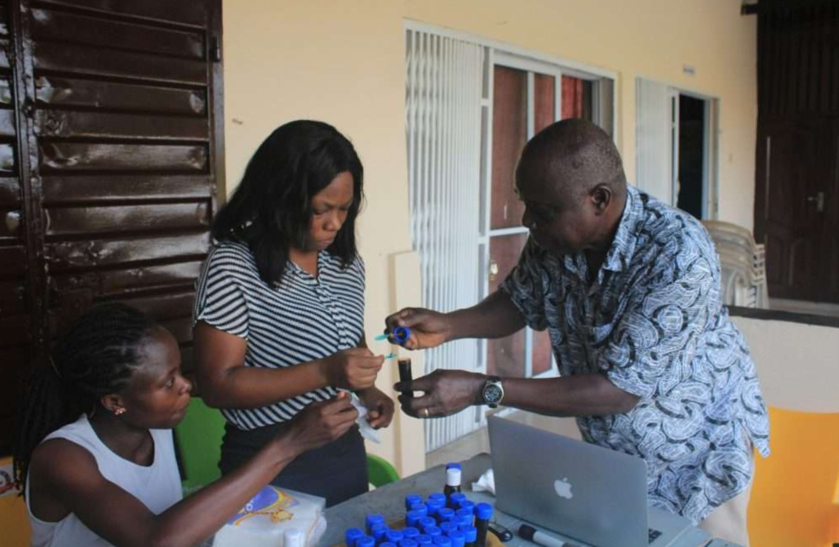Bees for Development - Ghana - April 2023
Bee the Voice project - Beekeeping to empower vulnerable women
Bees for Development Ghana (BfDG) has introduced a new project to address gender disparity in relation to beekeeping development (and training). Research findings point to the fact that only about 13% of Agricultural Extension Agents are women. This is most likely to affect extension delivery to women as this is mostly done by men.
Similarly, the beekeeping sector is highly skewed against women’s participation and benefit, with less than 1% of beekeeper trainers being women. The Apiculture Development Coordinator of BfDG, Isaac Mbroh, put it, “I am yet to see a woman beekeeping trainer in Ghana. They are very rare.”
We learned from our previous work that in proportion to baseline income women benefitted more than men but only 32% of the farmers we reached were women and in gross terms, they earned less.
Beekeeping has outstanding features which make it a powerful intervention for vulnerable women.
- Bees and bee forage (pollen and nectar) are free
- Beekeeping does not require daily attention, so does not add to women’s burden of responsibilities
- Vulnerable women have less land than men, yet beekeeping needs very little land – just space for hives, whilst bees forage on others’ land.
Furthermore, as bees forage, they pollinate fruit crops such as cashew –an important cash crop in Ghana– increasing yields. Beekeeping meets the need of poor rural women.
To address this huge gap in the beekeeping sector, BfDG has rolled out a new project that begun February 2023. This project is about building long-term capacity and setting the foundation for transformational change across the sector – now and into the future.
The project takes an innovative approach to addressing gender disparity by providing intense investment in three young ladies (called Professional Women Beekeeping Trainers), enabling them to become professional beekeepers and change agents. They will become women entrepreneurs, advocates and trainers serving the wider apiculture sector in Ghana and beyond.
We hope to train this cohort of very talented and ambitious ladies who have graduated from universities in Ghana in beekeeping and in gender-responsive approaches to development – through an intensive five (5) module training programme.
Most attempts to bring the benefits of beekeeping to vulnerable women deploy male beekeeper trainers and include some women beneficiaries in a standard male-oriented beekeeping project. This does not bring structural transformation to the sector which is what is needed. Our approach elevates women as change agents in the sector.
An eighteen-month programme has been designed to prepare these young ladies for the beekeeping world that awaits them. The three were selected from over 100 applicants who applied to be part of the project.
The training programme started at the Saltpond Honey Centre with a one-month orientation and background sessions in nature-based sustainable beekeeping. The Director of BfDG, Dr Kwame Aidoo took the ladies through several classroom and field practical sessions.

